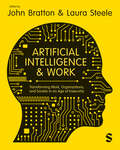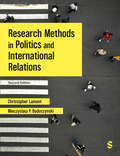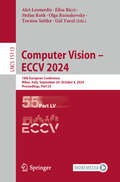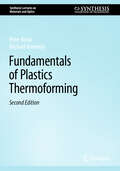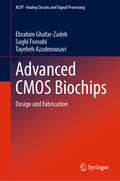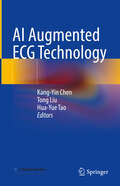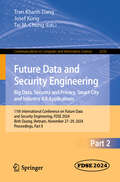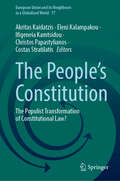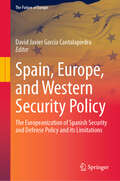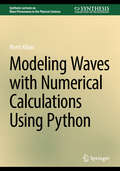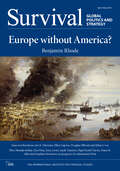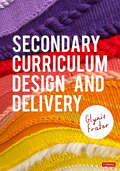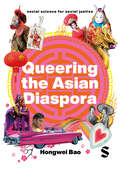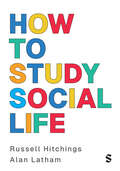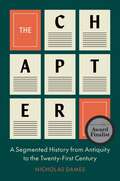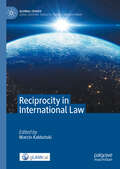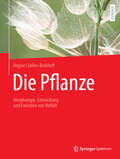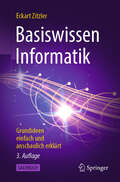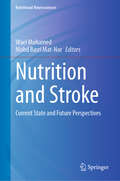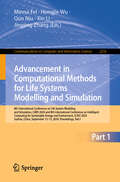- Table View
- List View
Artificial Intelligence and Work: Transforming Work, Organizations, and Society in an Age of Insecurity
by John Bratton Laura SteeleIn an era marked by insecurity from neoliberalism, financial volatility, political instability, regional conflicts, pandemics, and the climate crisis, Artificial Intelligence (AI) is revolutionizing our work, organizations, societies, and the environment. This critical text explores who truly benefits from AI′s development and deployment, offering a comprehensive overview of AI′s nature, history, and applications. It delves into crucial themes such as the future of work, digitalization, neoliberalism′s impact, power dynamics, ethics, inequality, gender, race, intersectional discrimination, and environmental sustainability. Unlike practical machine learning guides, this book examines how AI and AI-based technologies are transforming work, highlighting both benefits and potential harms. Combining critical management and leadership studies with organizational sociology, it addresses societal implications, inequality, ethics, and power often overlooked by other textbooks. John Bratton′s lucid and engaging writing style brings a cutting-edge subject to life, blending breadth, critical analysis, and academic rigor. Contemporary examples illustrate AI′s real-life implications for organizations and work today, while thought-provoking questions encourage readers to engage with and reflect on the topics throughout. Authored by John Bratton, an Honorary Professor at Queen’s University Belfast, and Laura Steele, a Senior Lecturer in Business and Society at Queen’s University Belfast, this interdisciplinary text is essential for students studying contemporary and emerging issues in business and management, including AI, business analytics, digitalization, and the future of work. It is also recommended for courses on the sociology of work, ethics, organization studies, management, leadership, and HRM. This book is poised to become an essential textbook for courses on AI, digitalization, and the future of work, making it a valuable resource for students and educators alike.
Research Methods in Politics and International Relations
by Christopher Lamont Mieczyslaw P. BoduszynskiThe most practical guide to conducting research in Politics and International Relations. This textbook sets out how to approach every stage of your research project, from formulating a research question and research design, to detailed guidance on using specific methods and writing up your paper. Packed with practical tips throughout, this second edition: •Offers a troubleshooting feature to help you with the most common blockages and questions at each stage of the process •Has unrivalled coverage, with brand-new chapters on all the key methods used in Politics and IR, from discourse analysis and interviews to descriptive and inferential statistics. •Engages with some of the most cutting-edge research with examples spanning current issues from climate change to great power competition. •Helps you engage with theory in your research project, with a standalone chapter mapping theoretical perspectives and how to engage with theory successfully in your research. •Is immersed in practical application with two "Research in Practice" features running throughout the book to show methods in practice. Lamont and Boduszynski’s new book is eminently readable and designed for all students of Politics and IR, whether on an introductory methods course or undertaking a research project. Christopher Lamont is Dean of E-Track’s International Relations program and Vice Dean of the Graduate School of International Relations at Tokyo International University in Japan. Mieczyslaw P. Boduszynski is Associate Professor of Politics and International Relations at Pomona College in California, USA.
Computer Vision – ECCV 2024: 18th European Conference, Milan, Italy, September 29–October 4, 2024, Proceedings, Part LV (Lecture Notes in Computer Science #15113)
by Stefan Roth Aleš Leonardis Elisa Ricci Torsten Sattler Olga Russakovsky Gül VarolThe multi-volume set of LNCS books with volume numbers 15059 up to 15147 constitutes the refereed proceedings of the 18th European Conference on Computer Vision, ECCV 2024, held in Milan, Italy, during September 29–October 4, 2024. The 2387 papers presented in these proceedings were carefully reviewed and selected from a total of 8585 submissions. They deal with topics such as computer vision; machine learning; deep neural networks; reinforcement learning; object recognition; image classification; image processing; object detection; semantic segmentation; human pose estimation; 3d reconstruction; stereo vision; computational photography; neural networks; image coding; image reconstruction; motion estimation.
Fundamentals of Plastics Thermoforming (Synthesis Lectures on Materials and Optics)
by Michael Kennedy Peter KleinThis second edition serves as a foundational guide to plastics thermoforming, covering the essential topics of the industry today. The authors take a process application approach to the topic, rather than focusing on theory. The book explains materials and processes, as well as part and tool design. This second edition includes thorough discussion of green plastics within an expanded chapter on environmental issues. The authors also cover quality control, which is critical to any operation. The book provides information about actual products and processes with the intent of understanding practical issues in the industry, which makes the book a valuable resource for students and professionals in the field of thermoforming, including manufacturing, managers, process engineers, and quality engineers. This second edition expands upon the original book and brings it up to date with additional data and key updates.
Advanced CMOS Biochips: Design and Fabrication (Analog Circuits and Signal Processing)
by Ebrahim Ghafar-Zadeh Saghi Forouhi Tayebeh AzadmousaviBiochips incorporate a verity of means including electronic, photonic and microfluidic devices; biological materials (living cells, tissue, enzymes, nucleic acid and etc.) and chemical analysis to produce the detectable signals for identification of biological phenomena. Among several competing biochip technologies, Complementary Metal Oxide Semiconductor (CMOS) process offers the advantages of low cost, integrated, high precision and portable techniques suitable for point-of-care diagnostics. Advanced CMOS Biochip takes multi-path approach: microelectronic design and implementation of bio-interfaces offering a vital contemporary view of a wide range of integrated circuits and system for electrical, magnetic, optical and mechanical sensing and actuating blocks and much more; classical knowledge of biology, biochemistry as well as microfluidics. The coverage is both practical and in depth integrating experimental, theoretical and simulation examples. By using Advanced CMOS Biochip, readers will have the fundamentals and design techniques to grasp the situation which arise typically in CMOS biochip devices.
AI Augmented ECG Technology
by Kang-Yin Chen Tong Liu Hua-Yue TaoThis book mainly focuses on the application of AI technology in the field of ECG, and details the theoretical, practical, and evidence-based aspects of this technology. It extensively reviews the latest research reports, and discusses the application of artificial intelligence in the diagnosis and treatment of cardiovascular diseases. This book focuses on the application of artificial intelligence in the diagnosis and treatment of cardiovascular diseases, and discusses in depth its clinical application in the diagnosis and treatment of coronary heart disease, heart failure, arrhythmia, cardiac pacing, hypertension, myocardial disease, heart valve disease, electrolyte disorders, and other diseases. It not only provides an overview of medical artificial intelligence but also richly demonstrates its clinical practice, which will help cardiovascular doctors, electrocardiogram diagnostic doctors, or medical students to understand the basic theories, applications, and development direction of this field.
Future Data and Security Engineering. Big Data, Security and Privacy, Smart City and Industry 4.0 Applications: 11th International Conference on Future Data and Security Engineering, FDSE 2024, Binh Duong, Vietnam, November 27–29, 2024, Proceedings, Part II (Communications in Computer and Information Science #2310)
by Josef Küng Tran Khanh Dang Tai M. ChungThis two-volume set CCIS 2309-2310 constitutes the refereed proceedings of the 11th International Conference on Future Data and Security Engineering. Big Data, Security and Privacy, Smart City and Industry 4.0 Applications, FDSE 2024, held in Binh Duong, Vietnam, during November 27–29, 2024. The 44 full papers, 12 short papers and 1 keynote paper were carefully reviewed and selected from 189 submissions. They were organized in topical sections as follows: advances in machine learning for big data analytics; security and privacy engineering; data analytics and healthcare systems; smart city and industry 4.0 applications; big data query processing and optimization; and short papers; security and data engineering.
The People’s Constitution: The Populist Transformation of Constitutional Law? (European Union and its Neighbours in a Globalized World #17)
by Costas Stratilatis Akritas Kaidatzis Eleni Kalampakou Ifigeneia Kamtsidou Christos PapastylianosThe book explores in both theory and practice the challenges that various forms of populism pose to the dominant understandings of democratic representation and liberal constitutionalism. The volume brings together conceptual, analytical, and empirical dimensions of the relationship between populism and constitutional democracy. Moving beyond the dominant depiction of populism as “anti-pluralist”, scholars of legal and political theory, both well-known and early career researchers, discuss the paradoxes of constitutional democracy that populism brings to the surface, the complex role of the judiciary both as an enemy and as a potential ally of populism, the relationship between economic power and populism and ultimately the impasses of liberalism that populism forces us to revisit. These are highly topical issues that they have not been sufficiently explored in the literature. A significant asset of the volume is that it includes chapters on empirical studies from under-explored cases such as Southern Europe and the Balkans. Thus, the volume poses an original contribution to the existing literature on constitutional populism. Its originality along with the high quality of the research will make this book necessary for any constitutional and political theorist who aims to delve into the relationship between constitutionalism and populism.
Spain, Europe, and Western Security Policy: The Europeanization of Spanish Security and Defense Policy and its Limitations (The Future of Europe)
by David Javier García CantalapiedraThis book analyzes the limitations in the Europeanization of Spanish security and defense policy. For various reasons, Spain has maintained an amalgamated security system based on agreements with NATO, the EU and the US. This combination has produced a dysfunctional system, as it is not truly able to address some of the country’s vital security interests, above all in North Africa and the Mediterranean. At the same time, due mainly to domestic reasons, various Spanish governments have been reluctant to pursue autonomy in the country’s security policy and defense capabilities. Written by a team of scholars and practitioners, this book offers policymakers and professionals both a general overview of and deeper insights into the issue. Due to the lack of comprehensive studies on Spanish security and defense policy and its ties to Europe, this book will be of particular interest.
Modeling Waves with Numerical Calculations Using Python (Synthesis Lectures on Wave Phenomena in the Physical Sciences)
by Rhett AllainNumerical calculations (what many call computational physics) is a core tool in modern physics. With numerical methods it’s possible to solve problems that would otherwise be impossible. Most physics students and educators have at least some exposure to the wave equation. It shows up in many different contexts—light, quantum mechanics, and even a simple wave on a string. However, it can be difficult to come up with non-trivial solutions to the wave equation. This text goes through the techniques to create a numerical model of the wave equation starting from the very basics and using free and open source tools such as Python and Web VPython.
Survival: April – May 2024
Survival, the IISS’s bimonthly journal, challenges conventional wisdom and brings fresh, often controversial, perspectives on strategic issues of the moment.In this issue:• Benjamin Rhode examines the threat of Europe’s security guarantor of the past 80 years stepping back• Ellen Laipson and Douglas Ollivant explore how the Gaza war has threatened Iraq’s balancing act between the US and Iran• Nigel Gould-Davies cautions that, despite the West’s economic superiority over Russia, it is starting to look like the balance of resolve in the Ukraine war favours Russia• Dana H. Allin and Jonathan Stevenson examine the mystery of why new aid for Ukraine is blocked in the US Congress in spite of bipartisan support• And eight more thought-provoking pieces, as well as our regular Book Reviews and Noteworthy column.Editor: Dr Dana AllinManaging Editor: Jonathan StevensonAssociate Editor: Carolyn WestEditorial Assistant: Conor Hodges
Research Methods in Politics and International Relations
by Christopher Lamont Mieczyslaw P. BoduszynskiThe most practical guide to conducting research in Politics and International Relations. This textbook sets out how to approach every stage of your research project, from formulating a research question and research design, to detailed guidance on using specific methods and writing up your paper. Packed with practical tips throughout, this second edition: •Offers a troubleshooting feature to help you with the most common blockages and questions at each stage of the process •Has unrivalled coverage, with brand-new chapters on all the key methods used in Politics and IR, from discourse analysis and interviews to descriptive and inferential statistics. •Engages with some of the most cutting-edge research with examples spanning current issues from climate change to great power competition. •Helps you engage with theory in your research project, with a standalone chapter mapping theoretical perspectives and how to engage with theory successfully in your research. •Is immersed in practical application with two "Research in Practice" features running throughout the book to show methods in practice. Lamont and Boduszynski’s new book is eminently readable and designed for all students of Politics and IR, whether on an introductory methods course or undertaking a research project. Christopher Lamont is Dean of E-Track’s International Relations program and Vice Dean of the Graduate School of International Relations at Tokyo International University in Japan. Mieczyslaw P. Boduszynski is Associate Professor of Politics and International Relations at Pomona College in California, USA.
Artificial Intelligence and Work: Transforming Work, Organizations, and Society in an Age of Insecurity
by John Bratton Laura SteeleIn an era marked by insecurity from neoliberalism, financial volatility, political instability, regional conflicts, pandemics, and the climate crisis, Artificial Intelligence (AI) is revolutionizing our work, organizations, societies, and the environment. This critical text explores who truly benefits from AI′s development and deployment, offering a comprehensive overview of AI′s nature, history, and applications. It delves into crucial themes such as the future of work, digitalization, neoliberalism′s impact, power dynamics, ethics, inequality, gender, race, intersectional discrimination, and environmental sustainability. Unlike practical machine learning guides, this book examines how AI and AI-based technologies are transforming work, highlighting both benefits and potential harms. Combining critical management and leadership studies with organizational sociology, it addresses societal implications, inequality, ethics, and power often overlooked by other textbooks. John Bratton′s lucid and engaging writing style brings a cutting-edge subject to life, blending breadth, critical analysis, and academic rigor. Contemporary examples illustrate AI′s real-life implications for organizations and work today, while thought-provoking questions encourage readers to engage with and reflect on the topics throughout. Authored by John Bratton, an Honorary Professor at Queen’s University Belfast, and Laura Steele, a Senior Lecturer in Business and Society at Queen’s University Belfast, this interdisciplinary text is essential for students studying contemporary and emerging issues in business and management, including AI, business analytics, digitalization, and the future of work. It is also recommended for courses on the sociology of work, ethics, organization studies, management, leadership, and HRM. This book is poised to become an essential textbook for courses on AI, digitalization, and the future of work, making it a valuable resource for students and educators alike.
Secondary Curriculum Design and Delivery
by Glynis FraterThis is a practical guide for school leaders and teachers who have responsibility for designing and delivering a knowledge-rich and skills-focused curriculum at KS3 and KS4. It considers the elements that underpin a high-quality curriculum and how to create sequential and conceptually rich learning experiences for pupils across the secondary phase. Key topics include: Tools and techniques that can support staff to develop a cohesive curriculum across every secondary subject area A focus on essential knowledge and skills within each subject Transition from primary to secondary school and the importance of KS3 The role of leadership in defining curriculum vision, rationale and ambition A review of compulsory and desirable elements of curriculum planning such as well-being and physical health Glynis Frater is the founder and a director of Learning Cultures. She has taught across both the primary and secondary phases of education and delivers CPD programmes on leadership, curriculum planning and embedding coaching into a whole school culture.
Secondary Curriculum Design and Delivery
by Glynis FraterThis is a practical guide for school leaders and teachers who have responsibility for designing and delivering a knowledge-rich and skills-focused curriculum at KS3 and KS4. It considers the elements that underpin a high-quality curriculum and how to create sequential and conceptually rich learning experiences for pupils across the secondary phase. Key topics include: Tools and techniques that can support staff to develop a cohesive curriculum across every secondary subject area A focus on essential knowledge and skills within each subject Transition from primary to secondary school and the importance of KS3 The role of leadership in defining curriculum vision, rationale and ambition A review of compulsory and desirable elements of curriculum planning such as well-being and physical health Glynis Frater is the founder and a director of Learning Cultures. She has taught across both the primary and secondary phases of education and delivers CPD programmes on leadership, curriculum planning and embedding coaching into a whole school culture.
Queering the Asian Diaspora: East and Southeast Asian Sexuality, Identity and Cultural Politics (Social Science for Social Justice)
by Hongwei BaoThe COVID-19 pandemic has intensified global geopolitical tensions, bringing Sinophobia and anti-Asian racism into sharp focus. At the same time, a growing Asian diasporic consciousness is emerging worldwide, celebrating Asian identity and cultural heritage. Yet, in the space between anti-Asian racism and the rise of Asian advocacy, the voices of queer people have often been largely missing. This book addresses that gap. Exploring a range of contemporary case studies from art, fashion, performance, film, and political activism, Bao offers a powerful intersectional cultural politics—anti-nationalist, anti-racist, decolonial, feminist, and queer—that challenges dominant narratives and amplifies marginalized voices. The Social Science for Social Justice series challenges the Ivory Tower of academia, providing a platform for academics, journalists, and activists of color to respond to pressing social issues.
How to Study Social Life
by Russell Hitchings Alan LathamDo you want to study what people do, the things they say, or what they think? This book offers a lively and questioning account of the essential elements of social research, from defining your research purpose to producing the right output for your audience. Fostering inquisitiveness and ingenuity and drawing on lots of examples and experiences, it will inspire you to think afresh about the various things you might do as a social researcher. It will also: Reveal the lived realities of research, sharing honest and illuminating stories along the way; Draw on plenty of past exercises with students to consider how different activities work Demystify the process so you can think for yourself about how to do effective projects. Original, engaging and candid, this book will help any undergraduate or postgraduate navigate the dynamic and challenging landscape of social research with confidence and creativity.
Queering the Asian Diaspora: East and Southeast Asian Sexuality, Identity and Cultural Politics (Social Science for Social Justice)
by Hongwei BaoThe COVID-19 pandemic has intensified global geopolitical tensions, bringing Sinophobia and anti-Asian racism into sharp focus. At the same time, a growing Asian diasporic consciousness is emerging worldwide, celebrating Asian identity and cultural heritage. Yet, in the space between anti-Asian racism and the rise of Asian advocacy, the voices of queer people have often been largely missing. This book addresses that gap. Exploring a range of contemporary case studies from art, fashion, performance, film, and political activism, Bao offers a powerful intersectional cultural politics—anti-nationalist, anti-racist, decolonial, feminist, and queer—that challenges dominant narratives and amplifies marginalized voices. The Social Science for Social Justice series challenges the Ivory Tower of academia, providing a platform for academics, journalists, and activists of color to respond to pressing social issues.
How to Study Social Life
by Alan Latham Russell HitchingsDo you want to study what people do, the things they say, or what they think? This book offers a lively and questioning account of the essential elements of social research, from defining your research purpose to producing the right output for your audience. Fostering inquisitiveness and ingenuity and drawing on lots of examples and experiences, it will inspire you to think afresh about the various things you might do as a social researcher. It will also: Reveal the lived realities of research, sharing honest and illuminating stories along the way; Draw on plenty of past exercises with students to consider how different activities work Demystify the process so you can think for yourself about how to do effective projects. Original, engaging and candid, this book will help any undergraduate or postgraduate navigate the dynamic and challenging landscape of social research with confidence and creativity.
The Chapter: A Segmented History from Antiquity to the Twenty-First Century
by Nicholas DamesFinalist for the National Book Critics Circle Award in CriticismShortlisted for the Christian Gauss Award, Phi Beta Kappa SocietyA history of the chapter from its origins in antiquity to todayWhy do books have chapters? With this seemingly simple question, Nicholas Dames embarks on a literary journey spanning two millennia, revealing how an ancient editorial technique became a universally recognized component of narrative art and a means to register the sensation of time.Dames begins with the textual compilations of the Roman world, where chapters evolved as a tool to organize information. He goes on to discuss the earliest divisional systems of the Gospels and the segmentation of medieval romances, describing how the chapter took on new purpose when applied to narrative texts and how narrative segmentation gave rise to a host of aesthetic techniques. Dames shares engaging and in-depth readings of influential figures, from Sterne, Goethe, Tolstoy, and Dickens to George Eliot, Machado de Assis, B. S. Johnson, Agnès Varda, Uwe Johnson, Jennifer Egan, and László Krasznahorkai. He illuminates the sometimes tacit, sometimes dramatic ways in which the chapter became a kind of reckoning with time and a quiet but persistent feature of modernity.Ranging from ancient tablets and scrolls to contemporary fiction and film, The Chapter provides a compelling, elegantly written history of a familiar compositional mode that readers often take for granted and offers a new theory of how this versatile means of dividing narrative sculpts our experience of time.
Reciprocity in International Law (Global Issues)
by Marcin KałduńskiThe world is changing. The era of globalization – where the states have been eager to cooperate towards common aims – might seem to be disappearing. Russia expresses a contempt for international law, China makes claim to power, while the United States, at least temporarily, shows disregard to international institutions they themselves created (in particular, the WTO and the WHO). The growing phenomenon of nationalistic and authoritarian leaders may seem to hamper the development of community interests. Some states may be more inclined to resort to reciprocal behaviour as certain events indicate (e.g., the exchange of prisoners-of-war in the Russia-Ukraine conflict and an exchange of economic sanctions – tit-for-tat or tat-for-tat). The field of international law appears to be returning to first principles in the light of multiple world crises. Thus, reciprocity – as a classic concept of international law – may “come back from the shadows,” be reinvented and reinforced to form one of the basic pillars in the relations among states. Given the above, the purpose of the book is to rediscover and identify the position and role of reciprocity in contemporary international law.
Die Pflanze: Morphologie, Entwicklung und Evolution von Vielfalt
by Regine Claßen-BockhoffDieses Buch stellt die faszinierende Vielfalt der Pflanzen vor, die sich im Laufe einer Millionen Jahre langen Evolutionsgeschichte entwickelt hat. Die Fülle an Formen und Lebensweisen ist aus dem Zusammenspiel von Entwicklungsmöglichkeiten und Anpassungszwängen entstanden. Im Zentrum des Buches stehen das offene Wachstum der Pflanzen und die parallele Evolution von Merkmalen. Die Autorin zeigt, dass Evolution auf Kooperation beruht, dass Krisen immer auch Optionen enthalten und dass Vielfalt das Überleben sichert. Exkurse zu ganz unterschiedlichen Themen ergänzen den Text oder laden zur kritischen Auseinandersetzung mit offenen Fragen ein. Das Buch verbindet auf verständliche Weise Alltagswissen mit botanischem Grund- und Spezialwissen. Studierende können es zur Vertiefung ihres Wissens begleitend zu Lehrveranstaltungen und bei der Abfassung von Seminarvorträgen und Abschlussarbeiten verwenden. Lehrenden kann es zur Vorbereitung von Lehrveranstaltungen und als Nachschlagwerk dienen.
Basiswissen Informatik: Grundideen einfach und anschaulich erklärt
by Eckart ZitzlerDieses reich bebilderte Sachbuch bietet Ihnen einen einfachen, aber fundierten Einstieg in das Gebiet der Informatik und erklärt Schritt für Schritt, wie Computer und Internet funktionieren. In 18 Kapiteln werden die Schlüsselbegriffe, die der Computertechnologie zugrunde liegen, in überschaubaren Portionen erläutert, zwei weitere Kapitel widmen sich neueren Entwicklungen und stellen exemplarisch aktuelle Forschungsgebiete vor. Dabei wird bewusst auf technische Details, Formeln und komplizierte Definitionen verzichtet, der Fokus liegt auf dem Verstehen der Ideen. Es geht um digital und analog, die innere Funktionsweise und den Aufbau von Computern, um Codierung, Programmiersprachen, Algorithmen und Datenstrukturen, um die Prinzipien und die Nutzung des Internets sowie um Künstliche Intelligenz, Verschlüsselung und Sicherheit. Das Buch ist in vier Teile untergliedert, führt vom Einsteigen über das Vertiefen zum Durchdringen und schließt mit dem Orientieren ab. Es richtet sich an alle Einsteigerinnen und Einsteiger, die ein Basiswissen in Informatik erwerben und hinter die Kulissen der digitalen Welt schauen wollen. Damit die Computerwissenschaft kein Buch mit sieben Siegeln bleibt. Die vorliegende 3. Auflage ist ergänzt um ein Kapitel zu großen Sprachmodellen, das die Funktionsweise von modernen Chatbots beleuchtet.
Nutrition and Stroke: Current State and Future Perspectives (Nutritional Neurosciences)
by Wael Mohamed Mohd Basri Mat-NorThis book provides a thorough examination of the correlation between nutrition and stroke. It delves into the interplay between nutrition and brain functions, neurogenesis, and cognitive functions. Additionally, it investigates how various types of nutrition relate to stroke. Moreover, it discusses recent progress in recognizing the significant therapeutic role of different nutrients in addressing stroke. Finally, it offers an overview of nutrients as neuroprotective agents and outlines the fundamental principles of nutrigenomics.
Advancement in Computational Methods for Life Systems Modelling and Simulation: 8th International Conference on Life System Modeling and Simulation, LSMS 2024 and 8th International Conference on Intelligent Computing for Sustainable Energy and Environment, ICSEE 2024, Suzhou, China, September 13–15, 2024, Proceedings, Part I (Communications in Computer and Information Science #2216)
by Xin Li Jingjing Zhang Qun Niu Minrui Fei Hongjie WuThe five-volume set constitutes the thoroughly refereed proceedings of the 8th International Conference on Life System Modeling and Simulation, LSMS 2024, and of the 8th International Conference on Intelligent Computing for Sustainable Energy and Environment, ICSEE 2024, which were held during September 13-15, in Suzhou, China. The 35 papers presented were carefully reviewed and selected from over 496 submissions. The LSMS and ICSEE international conference series aim to bring together international researchers and practitioners in the fields of advanced methods for life system modeling and simulation, as well as advanced intelligent computing theory, methodologies, and engineering applications in achieving net zero across all sectors to tackle the global climate change challenge.
